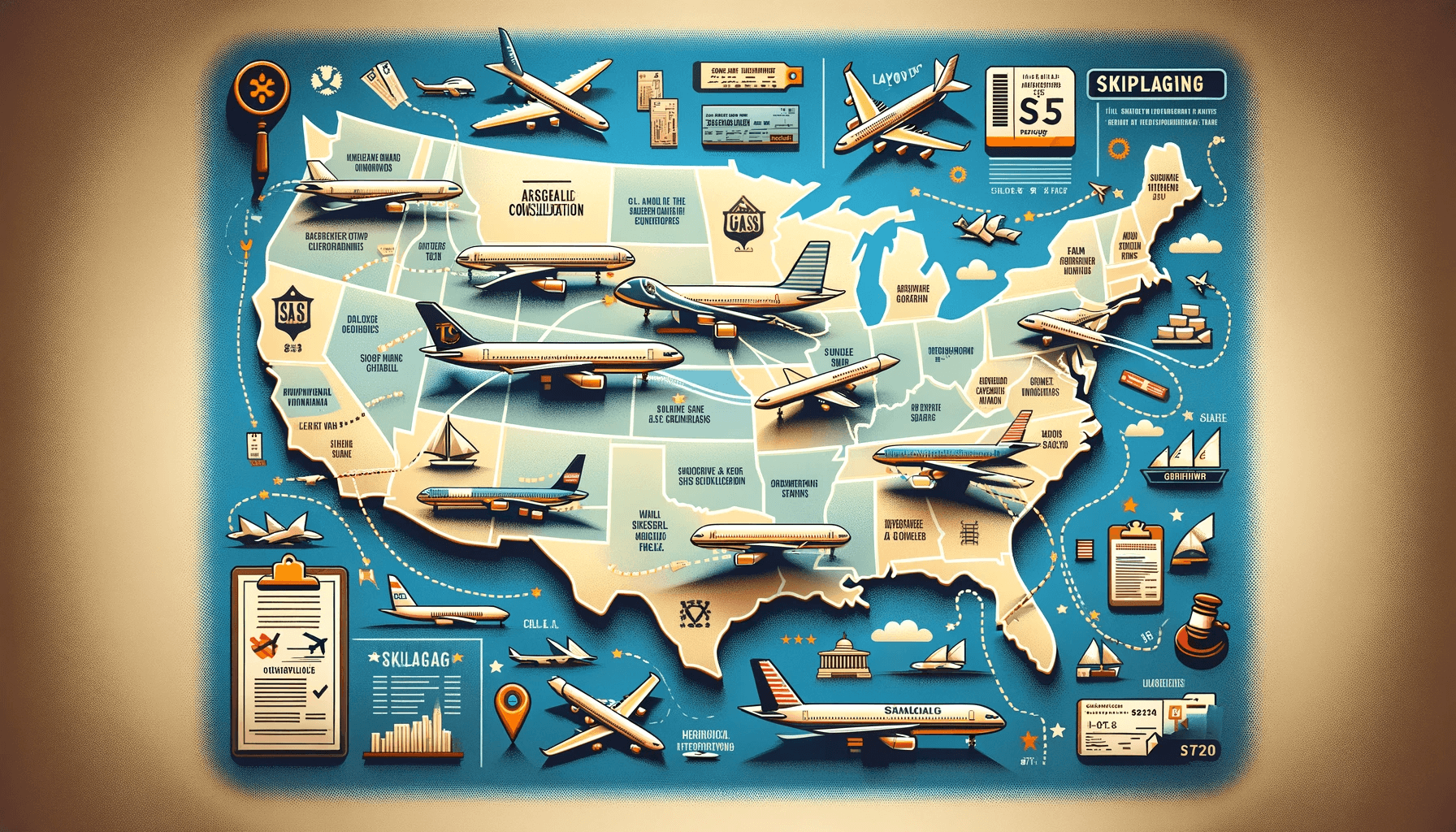In the dynamic and often complex realm of U.S. travel and airline policies, the concept of skiplagging has emerged as a controversial topic. Skiplagging, also known as hidden city ticketing or throwaway ticketing, is a travel hack where a passenger books a flight with a layover and intentionally disembarks at the layover destination, skipping the final leg of the journey. This practice is often employed to exploit lower fares for multi-stop flights compared to direct routes.
Despite its growing popularity among budget-conscious travelers, skiplagging is not without its legal and practical complications. It’s important to delve into the legality, airline policies, and the potential consequences of skiplagging to fully understand its implications.
Legality of Skiplagging
Skiplagging itself is not illegal in the United States. There are no federal laws or regulations explicitly prohibiting passengers from not completing all legs of their booked flights. This lack of legal prohibition is crucial for travelers to understand. However, this does not mean skiplagging is free of any legal considerations.
Airline Policies and Contracts
While not illegal, skiplagging often violates the terms and conditions set forth by airlines. Major airlines, including American, Delta, Southwest, and United, have specific policies that prohibit skiplagging. When a passenger purchases a ticket, they enter into a contractual agreement with the airline, which typically includes a clause against skiplagging.
Consequences of Skiplagging
Violating airline policies can lead to several consequences. Airlines may cancel the remaining segments of a passenger’s itinerary if they skip a flight. Additionally, frequent skiplaggers may face bans from airlines, lose their frequent flyer benefits, and potentially face legal action from airlines seeking to protect their revenue and operational integrity.
Risks and Considerations
Skiplagging also poses practical risks. If a passenger has checked luggage, it will continue to the final ticketed destination, not the layover point. Additionally, the practice can disrupt airline operations, leading to delays and inconveniences for other passengers. Airlines use various methods, including algorithms and travel data analysis, to detect skiplagging. Travelers should weigh these risks against any potential savings.
Alternatives to Skiplagging
For those looking to save on travel costs without resorting to skiplagging, there are alternatives. Travelers can book separate tickets for each leg of their journey, utilize budget airlines, take advantage of airline reward programs, or search for discounted fares during off-peak times.
In conclusion, while skiplagging is not illegal under U.S. law, it does breach airline policies and can lead to significant consequences for travelers. It’s a complex issue where legal permissibility does not equate to endorsement by airlines, highlighting the importance of understanding the contractual relationship between airlines and passengers. As with any travel hack, it’s essential to consider the legal, practical, and ethical implications before engaging in skiplagging









Leave a Reply